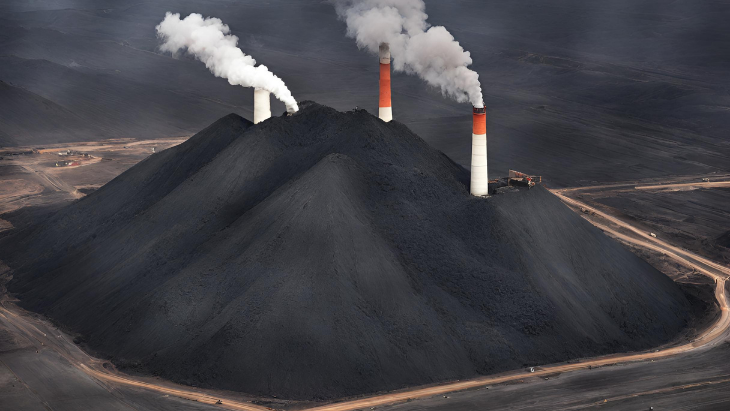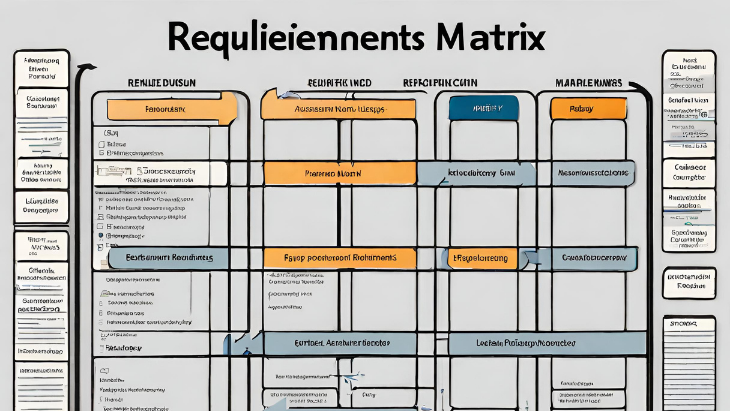Coal is a fossil fuel that has been used for centuries to generate electricity, heat homes and businesses, and power industrial processes. While it is a controversial fuel, coal does have several advantages.
Coal Advantages
Coal is a fossil fuel that has been used for centuries to generate electricity, heat homes and businesses, and power industrial processes. While it is a controversial fuel, coal does have several advantages.
Cost-effectiveness
Coal is a relatively inexpensive fuel to produce. This is due to the fact that coal is a naturally occurring resource that is relatively abundant. As a result, coal-fired power plants can generate electricity at a lower cost than other types of power plants, such as those that use natural gas or renewable energy.
Reliability
Coal is a reliable fuel. Coal-fired power plants can operate 24/7, regardless of the weather conditions. This makes coal a good choice for providing baseload power, which is the minimum amount of electricity that must be available at all times to meet demand.
Versatility
Coal can be used for a variety of purposes. In addition to generating electricity, coal can be used to heat homes and businesses, power industrial processes, and produce steel. This makes coal a versatile fuel that can meet a wide range of needs.
Environmental impact
The environmental impact of coal is a major concern. Coal combustion releases greenhouse gases, such as carbon dioxide, which contribute to climate change. Coal combustion also releases other pollutants, such as sulfur dioxide and nitrogen oxides, which can cause air pollution and acid rain.
Benefits of Coal
Coal is a fossil fuel that has been used for centuries to generate electricity, heat homes and businesses, and power industrial processes. While it is a controversial fuel, coal does have several benefits.
Cost-effectiveness
Coal is a relatively inexpensive fuel to produce. This is due to the fact that coal is a naturally occurring resource that is relatively abundant. As a result, coal-fired power plants can generate electricity at a lower cost than other types of power plants, such as those that use natural gas or renewable energy.
Reliability
Coal is a reliable fuel. Coal-fired power plants can operate 24/7, regardless of the weather conditions. This makes coal a good choice for providing baseload power, which is the minimum amount of electricity that must be available at all times to meet demand.
Versatility
Coal can be used for a variety of purposes. In addition to generating electricity, coal can be used to heat homes and businesses, power industrial processes, and produce steel. This makes coal a versatile fuel that can meet a wide range of needs.
Environmental impact
The environmental impact of coal is a major concern. Coal combustion releases greenhouse gases, such as carbon dioxide, which contribute to climate change. Coal combustion also releases other pollutants, such as sulfur dioxide and nitrogen oxides, which can cause air pollution and acid rain.
Conclusion
Coal has several benefits, including cost-effectiveness, reliability, and versatility. However, the environmental impact of coal is a major concern.
Here are some additional benefits of coal:
- Security Coal is a domestically produced fuel, which means that it is not subject to the same supply disruptions as imported fuels.
- Jobs The coal industry employs millions of people around the world.
- Infrastructure The coal industry has invested heavily in infrastructure, such as mines, power plants, and transportation systems. This infrastructure can be reused for other purposes, such as storing carbon dioxide or producing renewable energy.
Of course, there are also some drawbacks to using coal.
- Environmental impact As mentioned above, coal combustion releases greenhouse gases and other pollutants.
- Health risks Exposure to coal dust can cause respiratory problems.
- Land use Coal mining can disrupt land use and ecosystems.
Ultimately, the decision of whether or not to use coal is a complex one. There are both benefits and drawbacks to consider.
Pros of Coal
Coal is a fossil fuel that has been used for centuries to generate electricity, heat homes and businesses, and power industrial processes. While it is a controversial fuel, coal does have several advantages.
Here are some of the pros of coal:
- Cost-effectiveness: Coal is a relatively inexpensive fuel to produce. This is due to the fact that coal is a naturally occurring resource that is relatively abundant. As a result, coal-fired power plants can generate electricity at a lower cost than other types of power plants, such as those that use natural gas or renewable energy.
- Reliability: Coal is a reliable fuel. Coal-fired power plants can operate 24/7, regardless of the weather conditions. This makes coal a good choice for providing baseload power, which is the minimum amount of electricity that must be available at all times to meet demand.
- Versatility: Coal can be used for a variety of purposes. In addition to generating electricity, coal can be used to heat homes and businesses, power industrial processes, and produce steel. This makes coal a versatile fuel that can meet a wide range of needs.
Here are some additional pros of coal:
- Security: Coal is a domestically produced fuel, which means that it is not subject to the same supply disruptions as imported fuels.
- Jobs: The coal industry employs millions of people around the world.
- Infrastructure: The coal industry has invested heavily in infrastructure, such as mines, power plants, and transportation systems. This infrastructure can be reused for other purposes, such as storing carbon dioxide or producing renewable energy.
Of course, there are also some drawbacks to using coal.
- Environmental impact: As mentioned above, coal combustion releases greenhouse gases and other pollutants.
- Health risks: Exposure to coal dust can cause respiratory problems.
- Land use: Coal mining can disrupt land use and ecosystems.
Ultimately, the decision of whether or not to use coal is a complex one. There are both pros and cons to consider.
Here are some additional details about the pros of coal:
- Cost-effectiveness: Coal is a relatively inexpensive fuel to produce because it is a naturally occurring resource that is relatively abundant. Coal is also a relatively easy fuel to mine and transport.
- Reliability: Coal-fired power plants can operate 24/7, regardless of the weather conditions. This is because coal is a solid fuel that can be stored and burned on demand.
- Versatility: Coal can be used for a variety of purposes, including generating electricity, heating homes and businesses, powering industrial processes, and producing steel. This makes coal a versatile fuel that can meet a wide range of needs.
Security: Coal is a domestically produced fuel, which means that it is not subject to the same supply disruptions as imported fuels. This can be important for countries that are concerned about energy security.
- Jobs: The coal industry employs millions of people around the world. This includes jobs in mining, power generation, and transportation.
- Infrastructure: The coal industry has invested heavily in infrastructure, such as mines, power plants, and transportation systems. This infrastructure can be reused for other purposes, such as storing carbon dioxide or producing renewable energy.
Reasons to Use Coal
Coal is a fossil fuel that has been used for centuries to generate electricity, heat homes and businesses, and power industrial processes. While it is a controversial fuel, there are several reasons why coal is still used today.
Cost-effectiveness
Coal is a relatively inexpensive fuel to produce. This is due to the fact that coal is a naturally occurring resource that is relatively abundant. As a result, coal-fired power plants can generate electricity at a lower cost than other types of power plants, such as those that use natural gas or renewable energy.
Reliability
Coal is a reliable fuel. Coal-fired power plants can operate 24/7, regardless of the weather conditions. This makes coal a good choice for providing baseload power, which is the minimum amount of electricity that must be available at all times to meet demand.
Versatility
Coal can be used for a variety of purposes. In addition to generating electricity, coal can be used to heat homes and businesses, power industrial processes, and produce steel. This makes coal a versatile fuel that can meet a wide range of needs.
Security
Coal is a domestically produced fuel, which means that it is not subject to the same supply disruptions as imported fuels. This can be important for countries that are concerned about energy security.
Jobs
The coal industry employs millions of people around the world. This includes jobs in mining, power generation, and transportation.
Infrastructure
The coal industry has invested heavily in infrastructure, such as mines, power plants, and transportation systems. This infrastructure can be reused for other purposes, such as storing carbon dioxide or producing renewable energy.
Of course, there are also some drawbacks to using coal.
- Environmental impact: Coal combustion releases greenhouse gases and other pollutants.
- Health risks: Exposure to coal dust can cause respiratory problems.
- Land use: Coal mining can disrupt land use and ecosystems.
Ultimately, the decision of whether or not to use coal is a complex one. There are both pros and cons to consider.
Here are some additional details about the reasons to use coal:
- Cost-effectiveness: Coal is a relatively inexpensive fuel to produce because it is a naturally occurring resource that is relatively abundant. Coal is also a relatively easy fuel to mine and transport.
- Reliability: Coal-fired power plants can operate 24/7, regardless of the weather conditions. This is because coal is a solid fuel that can be stored and burned on demand.
- Versatility: Coal can be used for a variety of purposes, including generating electricity, heating homes and businesses, powering industrial processes, and producing steel. This makes coal a versatile fuel that can meet a wide range of needs.
Security: Coal is a domestically produced fuel, which means that it is not subject to the same supply disruptions as imported fuels. This can be important for countries that are concerned about energy security.
- Jobs: The coal industry employs millions of people around the world. This includes jobs in mining, power generation, and transportation.
- Infrastructure: The coal industry has invested heavily in infrastructure, such as mines, power plants, and transportation systems. This infrastructure can be reused for other purposes, such as storing carbon dioxide or producing renewable energy.
Advantages of Using Coal
Coal is a fossil fuel that has been used for centuries to generate electricity, heat homes and businesses, and power industrial processes. While it is a controversial fuel, there are several advantages to using coal.
Cost-effectiveness
Coal is a relatively inexpensive fuel to produce. This is due to the fact that coal is a naturally occurring resource that is relatively abundant. As a result, coal-fired power plants can generate electricity at a lower cost than other types of power plants, such as those that use natural gas or renewable energy.
Reliability
Coal is a reliable fuel. Coal-fired power plants can operate 24/7, regardless of the weather conditions. This makes coal a good choice for providing baseload power, which is the minimum amount of electricity that must be available at all times to meet demand.
Versatility
Coal can be used for a variety of purposes. In addition to generating electricity, coal can be used to heat homes and businesses, power industrial processes, and produce steel. This makes coal a versatile fuel that can meet a wide range of needs.
Security
Coal is a domestically produced fuel, which means that it is not subject to the same supply disruptions as imported fuels. This can be important for countries that are concerned about energy security.
Jobs
The coal industry employs millions of people around the world. This includes jobs in mining, power generation, and transportation.
Infrastructure
The coal industry has invested heavily in infrastructure, such as mines, power plants, and transportation systems. This infrastructure can be reused for other purposes, such as storing carbon dioxide or producing renewable energy.
Of course, there are also some drawbacks to using coal.
- Environmental impact: Coal combustion releases greenhouse gases and other pollutants.
- Health risks: Exposure to coal dust can cause respiratory problems.
- Land use: Coal mining can disrupt land use and ecosystems.
Ultimately, the decision of whether or not to use coal is a complex one. There are both pros and cons to consider.
Here are some additional details about the advantages of using coal:
- Cost-effectiveness: Coal is a relatively inexpensive fuel to produce because it is a naturally occurring resource that is relatively abundant. Coal is also a relatively easy fuel to mine and transport.
- Reliability: Coal-fired power plants can operate 24/7, regardless of the weather conditions. This is because coal is a solid fuel that can be stored and burned on demand.
- Versatility: Coal can be used for a variety of purposes, including generating electricity, heating homes and businesses, powering industrial processes, and producing steel. This makes coal a versatile fuel that can meet a wide range of needs.
Security: Coal is a domestically produced fuel, which means that it is not subject to the same supply disruptions as imported fuels. This can be important for countries that are concerned about energy security.
- Jobs: The coal industry employs millions of people around the world. This includes jobs in mining, power generation, and transportation.
- Infrastructure: The coal industry has invested heavily in infrastructure, such as mines, power plants, and transportation systems. This infrastructure can be reused for other purposes, such as storing carbon dioxide or producing renewable energy.
Conclusion:
Coal has several advantages, including cost-effectiveness, reliability, and versatility. However, the environmental impact of coal is a major concern. Ultimately, the decision of whether or not to use coal is a complex one.
Here are some additional arguments for using coal:
- Coal is a relatively stable fuel price, which can help to protect consumers from energy price volatility.
- Coal is a proven technology that is well understood and can be used to generate large amounts of electricity.
- Coal is a relatively abundant resource, which means that it is unlikely to run out in the foreseeable future.
Of course, there are also some arguments against using coal:
- Coal combustion is a major contributor to greenhouse gas emissions, which are a major cause of climate change.
- Coal combustion also releases other pollutants, such as sulfur dioxide and nitrogen oxides, which can cause air pollution and acid rain.
- Coal mining can disrupt land use and ecosystems.
**Ultimately, the decision of whether or not to use coal is a complex one that must be made on a case-by-case basis.











